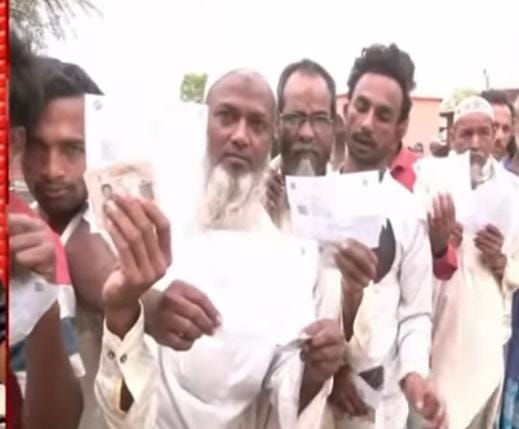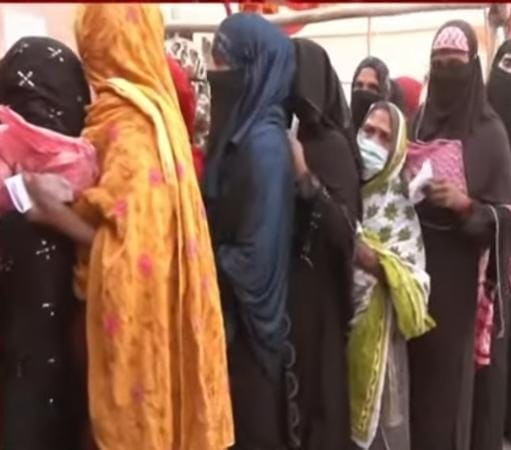

Rethinking Political Loyalty Amidst Shrinking Space
As Bihar gears up for its upcoming assembly elections, the Muslim community finds itself navigating one of the most politically disorienting times in recent history. Having already faced threats of disenfranchisement—both systemic and tactical—the community sees itself pushed further into political irrelevance, with the Election Commission’s high-handedness and the BJP’s apparent obduracy to dilute Muslim voter influence looming large.
Historically, Bihar’s Muslims have aligned themselves with the Rashtriya Janata Dal (RJD), more out of necessity than conviction. They have remained mentally shackled to the party even though their actual stake in power and decision-making has been minimal. The RJD, aware of this compelled loyalty, has grown complacent. It knows that Muslims, caught between the proverbial devil and the deep sea, have little option but to fall back in line. Yet, in an India becoming increasingly politically volatile, that loyalty can no longer be assumed without accountability.
The present political landscape is even more bleak and complicated. With Nitish Kumar nearing the twilight of his political career—grappling with age and what some see as diminishing cognitive sharpness—his alliance with the BJP and the inclusion of Lok Janshakti Party (LJP) under the NDA umbrella have left few real alternatives for Muslims. Meanwhile, the RJD continues to treat Muslims as a political herd, whose support can be summoned at will under pressure and fear, without offering genuine representation or leadership.
This neglect is not new, but the recent announcement of the RJD’s official list of representatives has made it even clearer. Except for a few token names like Faisal Ali, Tejashwi Yadav has made no significant effort to include more Muslim voices in party leadership. The underlying message is dangerously patronizing: “Where else will they go?”
Asaduddin Owaisi’s AIMIM, meanwhile, is viewed with deep suspicion by Bihar’s Muslims. Despite presenting itself as a party of Muslim empowerment, it is often accused of dividing secular votes—ultimately aiding the BJP’s prospects. The perception that AIMIM is working in tacit collusion with Muslim adversaries remains strong and widespread.
Adding another layer to this complex terrain is Jan Suraaj, the political initiative led by Prashant Kishor (PK). Despite its appeal to progressive and development-oriented voters, the initiative has failed to establish credibility within the Muslim community. Many remain skeptical, primarily because of PK’s ambiguous political past—having served virtually every major party at some point—and his conspicuous decision to obscure his surname, which some interpret as strategic evasion. On the ground, especially at the nukkad tea stalls and inside madrasa courtyards, the prevailing perception is that Jan Suraaj is either a BJP Trojan horse or, at best, a neutral disruptor with no clear moral compass.
This mistrust is compounded by the absence of any real Muslim leadership. The traditional Muslim clerical establishment has shown a tendency to lean toward parties offering personal perks rather than genuine community upliftment. Meanwhile, the so-called Muslim intelligentsia remains limited to drawing-room debates, cigar smoke, and abstract theorizing—far removed from the political trenches.
The biggest fear now is vote fragmentation. With AIMIM and Jan Suraaj drawing votes from the same disillusioned secular pool, the BJP stands to gain the most. They understand this dynamic better than anyone and have been quietly rooting for more fragmentation among the anti-BJP voter base.
Given these stark realities, what can Bihar’s Muslims realistically do?
First, they need to acknowledge that continuing to vote en masse for the RJD without demanding accountability is a political suicide mission. The RJD must be made to feel the weight of Muslim disengagement. A conscious disengagement—not a total boycott—can act as a political shock therapy. It might help shake the RJD from its comfort zone and force it to recognize that Muslims are not bound laborers to be herded to polling booths without receiving their fair share in representation.
Second, Muslims need to start fostering and backing their own credible leadership from within the community—leaders who are grounded, politically savvy, and not beholden to clerical or corporate interests. Unless the leadership question is addressed urgently, Muslims will continue to be mere vote banks without voice or power.
Third, rather than outright dismissing new political entrants like Jan Suraaj, the community should demand clarity. If Prashant Kishor and his team are genuinely independent, they must actively and transparently engage with the Muslim electorate—not through token outreach but with real policy commitments and representation.
Lastly, a wider, cross-community coalition with Dalits, OBCs, and other marginalized groups who feel politically short-changed under the NDA might be the only sustainable path forward. Muslims alone cannot change the tide, but together with other disenfranchised groups, a serious political realignment is still possible.
In the end, Muslims of Bihar cannot afford to remain rudderless. If they continue to float without direction, merely reacting to political waves, the BJP’s ascendancy will only become more entrenched. The moment demands not confusion or submission, but clarity, courage, and a will to forge a new political path.
[Dr Afroz Ashrafi is a Faculty Member in the Department of English at The College of Commerce, Arts and Science University, PatiliPutra ]





